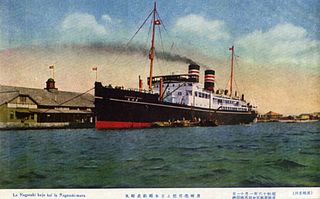
The Staggers Rail Act of 1980 is a United States federal law that deregulated the American railroad industry to a significant extent, and it replaced the regulatory structure that had existed since the Interstate Commerce Act of 1887.
The Railroad Revitalization and Regulatory Reform Act of 1976, often called the "4R Act," is a United States federal law that established the basic outlines of regulatory reform in the railroad industry and provided transitional operating funds following the 1970 bankruptcy of Penn Central Transportation Company. The law approved the "Final System Plan" for the newly created Conrail and authorized acquisition of Northeast Corridor tracks and facilities by Amtrak.

Deregulation is the process of removing or reducing state regulations, typically in the economic sphere. It is the repeal of governmental regulation of the economy. It became common in advanced industrial economies in the 1970s and 1980s, as a result of new trends in economic thinking about the inefficiencies of government regulation, and the risk that regulatory agencies would be controlled by the regulated industry to its benefit, and thereby hurt consumers and the wider economy. Economic regulations were promoted during the Gilded Age, in which progressive reforms were claimed as necessary to limit externalities like corporate abuse, unsafe child labor, monopolization, pollution, and to mitigate boom and bust cycles. Around the late 1970s, such reforms were deemed burdensome on economic growth and many politicians espousing neoliberalism started promoting deregulation.
In the United States government, independent agencies are agencies that exist outside the federal executive departments and the Executive Office of the President. In a narrower sense, the term refers only to those independent agencies that, while considered part of the executive branch, have regulatory or rulemaking authority and are insulated from presidential control, usually because the president's power to dismiss the agency head or a member is limited.

The United States Merchant Marine is an organization composed of United States civilian mariners and U.S. civilian and federally owned merchant vessels. Both the civilian mariners and the merchant vessels are managed by a combination of the government and private sectors, and engage in commerce or transportation of goods and services in and out of the navigable waters of the United States. The Merchant Marine primarily transports domestic and international cargo and passengers during peacetime, and operate and maintain deep-sea merchant ships, tugboats, towboats, ferries, dredges, excursion vessels, charter boats and other waterborne craft on the oceans, the Great Lakes, rivers, canals, harbors, and other waterways. In times of war, the Merchant Marine can be an auxiliary to the United States Navy, and can be called upon to deliver military personnel and materiel for the military.

The Merchant Marine Act of 1920 is a United States federal statute that provides for the promotion and maintenance of the American merchant marine. Among other purposes, the law regulates maritime commerce in U.S. waters and between U.S. ports. Section 27 of the Merchant Marine Act is known as the Jones Act and deals with cabotage. It requires that all goods transported by water between U.S. ports be carried on ships that have been constructed in the United States and that fly the U.S. flag, are owned by U.S. citizens, and are crewed by U.S. citizens and U.S. permanent residents. The act was introduced by Senator Wesley Jones. The law also defines certain seaman's rights.
The Export Administration Regulations (EAR) are a set of United States export guidelines and prohibitions. They are administered by the Bureau of Industry and Security which regulates the export restrictions of sensitive goods. The EAR apply to scenarios where something is exported from the US, re-exported from a foreign country, or transferred from one person to another in a foreign country. The EAR apply to physical objects as well as intellectual property such as software.

A freight rate is a price at which a certain cargo is delivered from one point to another. The price depends on the form of the cargo, the mode of transport, the weight of the cargo, and the distance to the delivery destination. Many shipping services, especially air carriers, use dimensional weight for calculating the price, which takes into account both weight and volume of the cargo.

The Interstate Commerce Act of 1887 is a United States federal law that was designed to regulate the railroad industry, particularly its monopolistic practices. The Act required that railroad rates be "reasonable and just," but did not empower the government to fix specific rates. It also required that railroads publicize shipping rates and prohibited short haul or long haul fare discrimination, a form of price discrimination against smaller markets, particularly farmers in Western or Southern Territory compared to the official Eastern states. The Act created a federal regulatory agency, the Interstate Commerce Commission (ICC), which it charged with monitoring railroads to ensure that they complied with the new regulations.
A freight forwarder or forwarding agent is a person or a company who co-ordinates and organizes the movement of shipments on behalf of a shipper by liaising with carriers. The carriers may use a variety of shipping modes, including ships, airplanes, trucks, and railroads, and often use multiple modes for a single shipment. A freight forwarder does not move the goods but acts as an agent in the logistics network and will carry out freight consolidation, rate negotiations, shipment tracking, customs and other documentation, among other tasks. FIATA describes a freight forwarder as the "Architect of transport".
An ocean transportation intermediary (OTI) is a company that is licensed by the Federal Maritime Commission (FMC) to operate in the United States as an ocean freight forwarder, non-vessel operating common carrier (NVOCC), or both.

A shipping line or shipping company is a company whose line of business is ownership and operation of ships.
The Motor Carrier Regulatory Reform and Modernization Act, more commonly known as the Motor Carrier Act of 1980 (MCA) is a United States federal law which deregulated the trucking industry.
Title 46 of the United States Code, titled "Shipping", outlines the federal laws contained within the United States Code that pertain to the shipping industry. It was gradually codified into the Positive Law of the United States, with partial codifications being enacted in the years 1988, 2002, and 2003. The title was fully codified into the Positive Law on October 6, 2006, when then-President George W. Bush signed Public Law 109-304 into law.
Sector Commander is the position title of the commanding officer of a United States Coast Guard Sector, usually of the rank of Captain (O-6). The Sector Commander's second-in-command is the Deputy Sector Commander. Also reporting directly to the Sector Commander are the Command Master Chief (CMC), the Senior Reserve Officer, and the Sector's Auxiliary Coordinator.
The Surface Freight Forwarder Deregulation Act of 1986, Public Law 99-521, is a federal law of the United States which eliminated federal regulation of prices, services and entry as to general commodities surface 'freight forwarders' This Act was a follow on to a sweeping program to free up competitive forces in United States transportation, most but not all of which was accomplished in the 1971-1980 period, as set out in the deregulation topic in this encyclopedia.
The Cargo Preference Act or Cargo Preference refers generally to legal requirements for the carriage of government-impelled cargoes on the vessels flagged within the registry of that government for the purpose of promoting a national merchant marine. Cargo Preference is commonplace among the world's seafaring nations, including Australia, Brazil, France, Japan, Taiwan.

The Hazardous Materials Transportation Act (HMTA), enacted in 1975, is the principal federal law in the United States regulating the transportation of hazardous materials. Its purpose is to "protect against the risks to life, property, and the environment that are inherent in the transportation of hazardous material in intrastate, interstate, and foreign commerce" under the authority of the United States Secretary of Transportation.

Louis Ernest Sola is an American businessman and politician, who is currently Commissioner of the Federal Maritime Commission. Sola currently works under Chairman Daniel B. Maffei and alongside Commissioners Rebecca F. Dye, Max Vekich and Carl Bentzel.
Transportation in the United States is governed by laws and regulations of the federal government. The Department of Transportation is responsible for carrying out federal transportation policy, and the Department of Homeland Security is responsible for security in transportation.





























